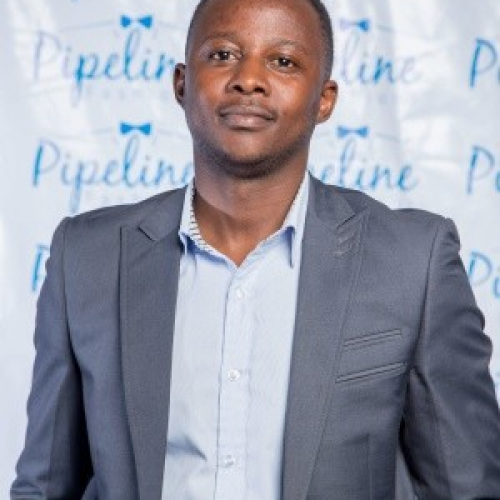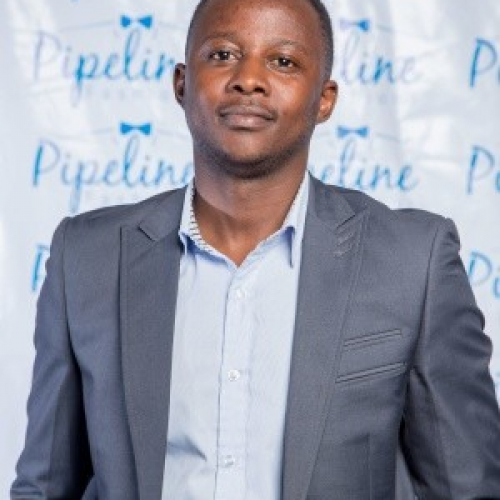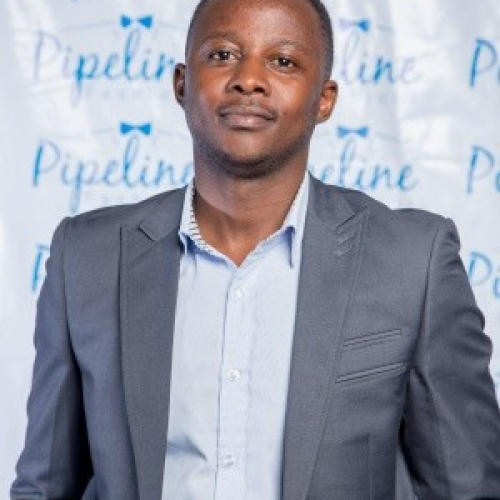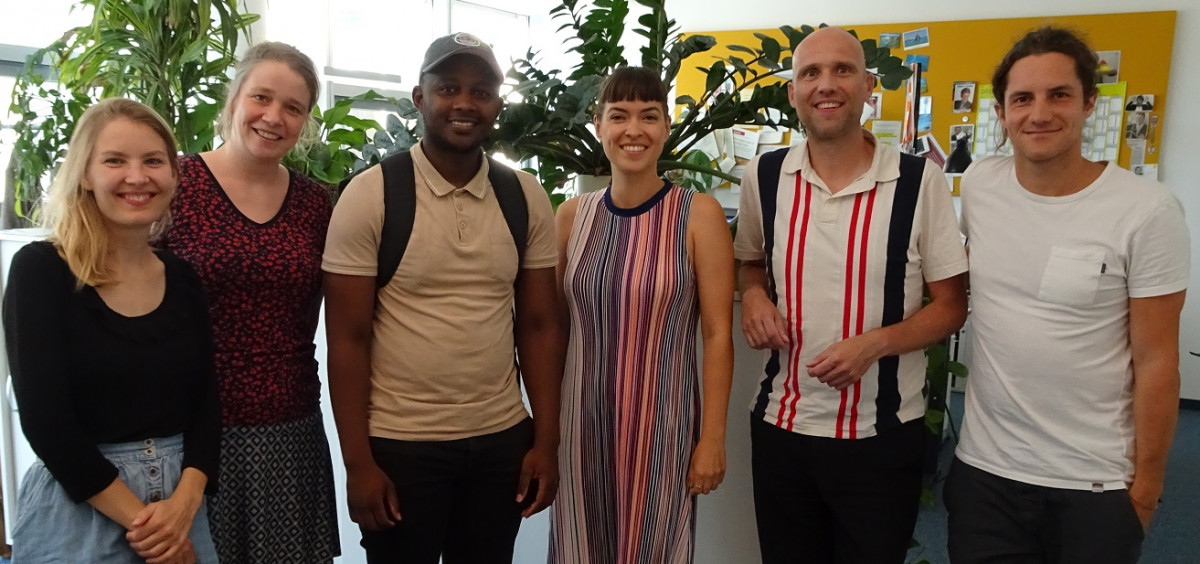Fridays for future shows hope and potential for Africa - Zimbabwean journalist reflects on time with CLEW
Being one of the five fellows selected for the prestigious journalist exchange through International Journalists’ Programmes (IJP) in Germany this year has been surreal experience for me. The fellowship is indeed a gateway to realising maximum potential for any young scribe curious to spread their wings and carve a niche on the global stage. In between the Kodak moments in Berlin and other cities, I have had an opportunity to widen my network and grasp new skills to stay relevant in the dynamic journalism profession. This chapter of my life could actually become a thick book detailing my experiences right from the moment I landed at Tegel Airport, but I have chosen a few of the most impactful ones that will forever remain etched in my mind.
Working in a German newsroom
The idea of working in a foreign newsroom can be both exciting and scary for a journalist like myself driven to achieve high wherever I go. My interest in getting into a first-world media system has always been high and one can imagine how I felt when the opportunity finally presented itself through the International Journalists Programme (IJP) in Germany this year. I was caught between doing lots of research so I could fit perfectly into this system or just entering the space without any background so I could tap this well of knowledge and fully maximise my new discoveries. Working at Clean Energy Wire (CLEW) has been an eye-opening journey towards my reportage on sustainability topics, particularly the transition from carbon-emitting power production to clean energy. I am startled by the attention to detail and immense research displayed in the CLEW newsroom and will definitely take home a couple of lessons to implement in my reportage of sustainability topics. My hope is that with time these issues also capture major attention in my country so there can be combined global action towards a green future in the not-too-distant future.
Face-to-face with climate change in Germany and the country’s response.
As part of the IJP schedule, the five participants in Berlin tour three German cities in the last week of June before starting internships in different newsrooms. The visit to Hamburg, Cologne and Munich was laden with adventure, discovery and a great reminder that times have changed and human survival depends greatly on how well we adapt.
The fact that the climate is changing is no longer a secret and even some of the greatest sceptics have the increasingly erratic weather patterns to remind them. Our train journey from Hamburg to Cologne was probably one to forget for most who were aboard the Deutsche Bahn on that fateful afternoon. Temperatures soared to record highs while the air conditioning system was failing in some coaches – a dire environment for all. Generally when you hail from the African continent, the heat is not something that fazes you much, but on this particular day, I and my colleagues from Botswana, Kenya, Namibia and South Africa were in agreement that this was nowhere near our normal experiences back home. One can only imagine how unbearable it was for locals who are traditionally accustomed to the not-so-hot summer seasons. This was a direct sign that global warming is a reality and there is a need for all hands on deck worldwide to rein in the rapidly advancing climatic changes.

There might be no silver bullet to solving the mess human activity has caused through greenhouse gas emissions, but humans can certainly learn from the past and adapt to the current changes.
However, despite these grim realities it is encouraging to see that in the vast farmlands between major cities there are efforts already underway to harness clean energy. Windmills stand tall within the green fields backed by solar panels both atop buildings and suspended on free spaces. There might be no silver bullet to solving the mess human activity has caused through greenhouse gas emissions, but humans can certainly learn from the past and adapt to the current changes. Such ways include taking advantage of the power potential of sun and wind.
Efficient transport and the great shift towards clean mobility
My journey from Hamburg to Cologne may have been not the most comfortable one but the experience was by no means a reflection on Germany’s largely efficient transport system. Transport in Germany is almost flawless and timely. A round-the-clock scheme neatly coordinated between trains, buses and trams can certainly give a visitor the joys of pursuing their business free of problems and inconvenience. The experience left me thinking how much time spent back home waiting for, in some instances, scanty public transport, could be used productively if we had such a clockwork system in place.
For those who wish to move around the city privately the options are open and wide. There are car-sharing services, bicycles for hire and even electronic scooters. For me riding a bike to my first press conference alongside a CLEW colleague earlier this month was a nostalgic and refreshing feeling. It reminded me of how as a teen I used this mode of transport to go to school or around the neighborhood for fun. After the experience, I constantly thought of the impact of riding a bike or hiring a scooter for a world at pains to reducing carbon emissions from fossil-fuel powered vehicles.
The gravity of environmental consciousness
The next point seems almost clear for most urban dwellers in German cities: they want cars out of their city roads. The calls are getting louder and after witnessing a bicycle protest in the “traffic jam capital” of Germany, Munich, I can attest that there is immense determination towards achieving this. If attained soon, this would be a fresh breath of air in the highly industrialised country and it should set the tone for developing countries across the globe to follow suit.

I feel strongly that this green future movement must be replicated back home in Zimbabwe and Africa.
This, coupled with the Fridays for Future, appears a timely antidote that can help secure a sustainable life decades from now. With young people here already keeping politicians on their toes over climate action, one can sleep better knowing that young people are finally taking charge and redefining their future. I feel strongly that this green future movement must be replicated back home in Zimbabwe and Africa. Great potential lies in the continent’s young population and there is need for them to also have a say regarding their lives.


